
Seeing how the Dead had been quite steadily cultivating a reputation for creating a somewhat participatory multimedia live experience truly unto itself ever since they burst out of the Bay Area scene and vaulted into national prominence in the mid-1960s. And now, Bear had to address the growing pains.
One big reason was the Dead's proclivity for insisting upon higher sound-quality standards for their studio recordings, as they were amongst the earliest bands to lay down their grooves with 16-track recording equipmentand Bear was adamant about how he could better translate that SQ-oriented aesthetic into the live arena by eliminating distortion, even in the 100,000-seat stadiums the Dead were finding themselves increasingly booked into playing across the country.
With that solemn charge, Bear began pursuing in earnest how to enact what would become known as the Wall of Sound exactly 50 years ago, in 1973. Unrelated to producer Phil Spector's same-named magic-touch studio-production sheen of the 1960s, the live Wall of Sound was instead meant to harness the full performance power of a band that viewed itself as being unrestricted by any of the typical societal and music-scene conventions of the time. Bear's vision for improving the Dead's live sound was one massive undertaking, to say the least.
Though the ever-shifting sands of time have resulted in some conflicting confirmations regarding what exactly was what, by most accounts, the original Wall of Sound appears to have deployed (count 'em) 586 JBL speakers, 54 Electro-Voice tweeters, and 48 McIntosh MC2300 stereo amplifiers, all to the tune of delivering a staggering 28,000 watts of raw power fueling six independent sound systems that utilized 11 separate channels.
This story is from the August - September 2023 edition of Sound & Vision.
Start your 7-day Magzter GOLD free trial to access thousands of curated premium stories, and 9,000+ magazines and newspapers.
Already a subscriber ? Sign In
This story is from the August - September 2023 edition of Sound & Vision.
Start your 7-day Magzter GOLD free trial to access thousands of curated premium stories, and 9,000+ magazines and newspapers.
Already a subscriber? Sign In
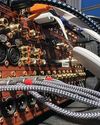
The Big Clean
Chances are you probably do not think about the state of your electronic devices too often. Oh, you might think about all the upgrades you would like to make; where you would put those new tower speakers, or how a second or third subwoofer would really tame those bass modes in your room, or how much more cinematic a larger screen would be. Sure, you think about that part of your system. But how often do you think about the well-being of your system?
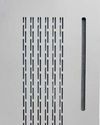
Planar-Magnetic Attraction
THE DIPTYQUE DP 115 speakers are a new model 2-way, ribbon, and planar magnetic driver dipole \"isodynamic\" speaker system designed and built in France.
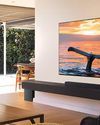
Full-Featured 4K
THE QN95D is one of two televisions we went hands-on with on a recent trip to Samsung's New Jersey QA Lab, the other being the S95D quantum-dot OLED.
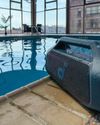
Party Animal
FOR ANY party, the Soundcore Boom 2 Plus Outdoor Bass Bluetooth Speaker is an essential invite.
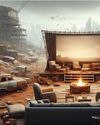
It's the End of the World. How About Popcorn and a Movie?
Attention all preppers! Today's column is right up your alley-or, more precisely-your tunnel to your underground bunker.
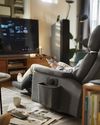
Bridging the Analog-Digital Gap on a Recliner
When I shopped for a motorized recliner, I rejected models with their own Internet Protocol address and built-in speakers. No need. I had already placed a smart speaker on an étagère beside the space where I had planned to put the chair. I'd have a smartphone in my hand and the room would be bathed in Wi-Fi.

BACK TO THE GARDEN
AN AQUARIAN EXPOSITION in WHITE LAKE, N.Y.
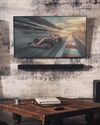
Big Sound, Small Price
DOLBY ATMOS, once a costly premium, is enjoying a surge of popularity across a range of new audio gear.
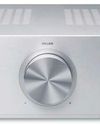
Classic Sound with Streaming Smarts
THE TWENTIETH century had its Roaring Twenties; welcome to the twenty-first's Streaming Twenties.
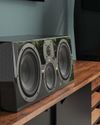
Stand and Deliver
IT DOESN'T seem all that long ago that SVS first entered the audio scene.
